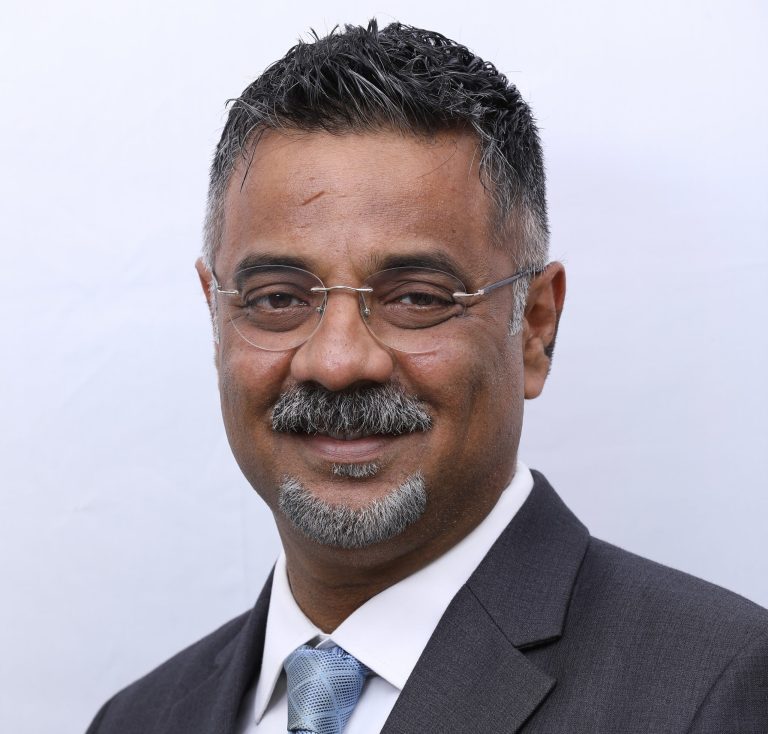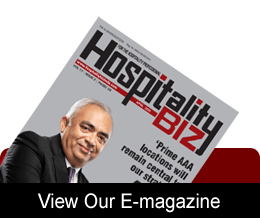The Tourism and Hospitality Skill Council (THSC) plays a vital role in connecting skilled youth with job opportunities. The council achieve this through developing industry-recognised standards, qualification packs, and entrepreneurship courses. Additionally, THSC collaborates with stakeholders to identify job openings and bridge the gap between talent and employers. Hospitality Biz spoke with Raman Bountra, a senior Board Member at the Tourism and Hospitality Skill Council (THSC) and the Group Account Director – Work Dynamics West Asia at JLL to know more about future of the facility management.
In your experience, how does the Tourism and Hospitality Skill Council play a role in connecting skilled youth with job opportunities in the hospitality industry?
The key initiatives of THSC are:
• Development of Industry-Recognized Skill Standards: Collaborating with industry professionals, including employers and subject matter experts, to define skill standards that align with industry requirements. These standards ensure that youth are equipped with the right skills and knowledge to be employable in the hospitality sector.
• Qualification packs for Skill Development: Design and implementation of skill development Qualification packs that provide comprehensive training and certification to youth in various hospitality disciplines and making them industry-ready. THSC collaborated with foreign organizations like American Hotel Lodging and Education (AHLEI) to provide globally recognized courses.
• Aspiring entrepreneurship: Courses designed specifically for aspiring entrepreneurs, such as homestay hosts, tour guides, walk tour facilitators, and travel guides, are geared towards empowering young individuals with the necessary skills to initiate their ventures. The goal is to foster domestic tourism businesses and cultivate a new generation of successful entrepreneurs.
• Industry Partnerships & Collaborations: THSC acts as a national-level organization with a government-industry interface and partnerships with stakeholders from the industry and labor sectors. This collaboration helps in identifying job opportunities and understanding the evolving needs of the hospitality industry. THSC works closely with employers to bridge the gap between skilled youth and job openings, establishing impactful partnerships with leading organizations in the Tourism and Hospitality sector to enable direct participation from industry stakeholders.
Overall, the Tourism and Hospitality Skill Council serves as a vital conduit between skilled youth and the hospitality industry, ensuring a holistic approach to talent development and employment opportunities in the sector.
As a facility manager, what are the biggest obstacles you face when hiring new staff? How do you address these challenges?
Facility management in India is a dynamic field brimming with possibilities. It offers the chance to shape positive work environments, contribute to social causes, and even reduce carbon emissions. However, like any burgeoning industry, hiring qualified professionals presents its own set of hurdles. A limited pool of candidates with the right blend of technical expertise, experience, and cultural understanding can make filling specialized roles particularly challenging. Furthermore, high competition for talent often leads to bidding wars for the industry’s top performers. To address these issues, many companies are implementing creative solutions. These range from employer branding initiatives to social programs that raise awareness of the profession and improve the lives of blue-collar workers and underprivileged communities. Partnerships with organizations like the THSC to develop targeted skill-building programs and leveraging technology to streamline hiring processes are additional proactive measures being taken.
The gap between industry demand and workforce skills is a persistent issue. How do you approach this challenge in your role?
Addressing the gap between industry demand and workforce skills is a critical challenge that requires a proactive approach, not just for facility management but for all sectors in the industry in general. Some approaches that have worked in my experience are:
Collaboration with Educational Institutions to help shape the educational programs to ensure they are up-to-date and relevant to the skills required in the industry.
Implementing Apprenticeship and Internship Programs to provide hands-on experience, practical training, and exposure to real-world facilities management scenarios.
Continuous Learning and Development for existing staff to enhance their skills: This includes providing access to relevant training programs, workshops, conferences, and certification courses. By investing in the professional growth of my team, I ensure that they stay abreast of industry trends and advancements.
Internal Skills Assessment, to identify any gaps and areas for improvement including performance evaluations, skills assessments, and individual development plans.
Embracing Technology and Innovation to enhance efficiency and productivity: This includes implementing smart building systems, utilizing data analytics, and adopting digital tools and platforms.
What is your vision for the future of the facility management industry in the coming years? What trends do you see emerging?
The facility management industry is undergoing a digital revolution akin to the IT boom of the late 90s. With the integration of artificial intelligence, the Internet of Things, and data analytics, facility managers have the potential to create intelligent buildings that are both efficient and environmentally sustainable. Smart buildings and predictive maintenance are already on the rise, allowing for optimized operations, improved efficiency, and a better overall experience for occupants. Sustainability will also be a major focus, with facility managers playing a key role in implementing green practices and energy-saving solutions. The future of facility management will prioritize occupant well-being and experience, with spaces designed to enhance comfort, convenience, and connectivity. Intelligent space planning will leverage data and analytics to optimize space utilization through desk sharing and flexible seating arrangements. Business continuity and risk management will remain a crucial aspect, with facility managers developing emergency plans, implementing robust security measures, and utilizing technology to proactively monitor and mitigate risks. Finally, the industry will see a shift in required skill sets, demanding professionals with digital literacy, agile problem-solving abilities, and strategic thinking. Continuous learning and development will be essential for facility managers to navigate the evolving landscape of this dynamic field.
Housekeeping positions can sometimes be undervalued. What advice would you give to people interested in a career in housekeeping? How do you overcome this perception during recruitment?
In my role, I interact with housekeeping staff every single day and I can tell you with confidence that they are some of the most empathetic and skillful people around. Unfortunately, this role has been looked down upon traditionally but with an increased focus on employee experience, the sector is realizing the true value and impact of the people working on the ground. In addition, FM managers and industry leaders can contribute to the agenda by the following:
Emphasize the critical role played by housekeeping professionals in maintaining cleanliness, hygiene, and overall guest satisfaction within hospitality establishments.
Emphasize the potential for career growth within the housekeeping profession. Highlight the potential to move up the ladder and take on supervisory or management roles.
Training and Skill Development and the potential to acquire specialized certifications, attend workshops and more.
Implement initiatives to recognize and appreciate the efforts and achievements of housekeeping professionals.
Above all – engage with the Community to promote housekeeping as a valuable and fulfilling career path, especially for the underprivileged sections of society.


